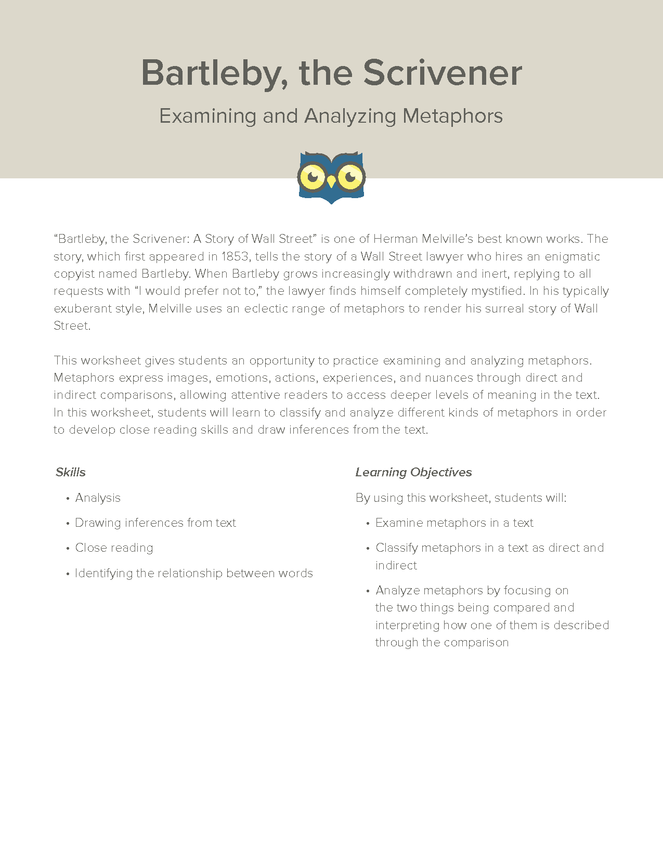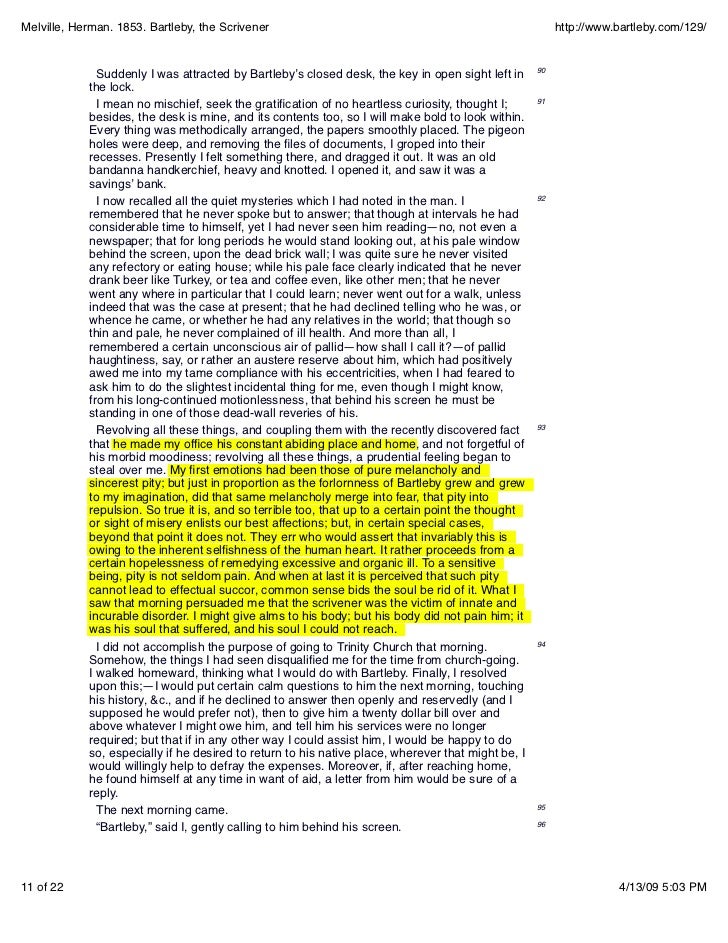

Melville’s short stories-all of which were written during this period and under these conditions-present bland and apparently harmless surfaces under which boil the same rebellion and the same questioning of established ideas that characterize his most controversial novels. Not only did Melville find a solution, but he also found one which, while not ideal from an artistic standpoint, gave him a great deal of rather diabolical satisfaction. This left Melville in an apparently unresolvable dilemma: ignore his own strongest beliefs, or allow those dependent on him to live in poverty.

Obviously, neither Putnam’s Monthly Magazine nor Harper’s New Monthly Magazine would publish stories which dealt openly with opinions that would be objectionable to many of their readers. These included the existence of a personal God outside the human spirit, the importance of material goods, the existence of absolute good and absolute evil, and the right of established civil and religious authorities to impose sanctions against those who expressed ideas that differed from the ideas of the majority. He genuinely questioned many of the ideas which, although they came to be freely debated, were sacrosanct in the nineteenth century. This was a shattering limitation to Melville, whose deepest personal and artistic convictions were bound up in the defiant heroes and themes of highly unconventional metaphysical speculation of Mardi and a Voyage Thither, Moby Dick, and Pierre. Both magazines, however, had very strict editorial policies banning any material which might conceivably offend even the most sensitive reader on moral, social, ethical, political, or religious grounds. He also sold short stories to Harper’s New Monthly Magazine. So when he received an invitation from Putnam’s Monthly Magazine to contribute short stories at the rate of five dollars a page, he accepted.

After the critical and commercial failure of Moby Dick and Pierre, Herman Melville, who was then supporting his wife and children, his mother, and his four sisters, was desperate for money.


 0 kommentar(er)
0 kommentar(er)
